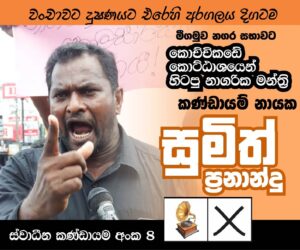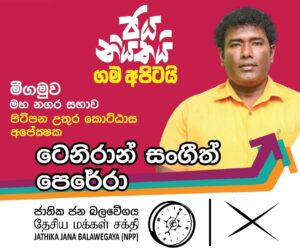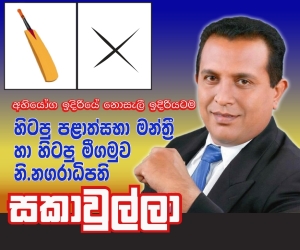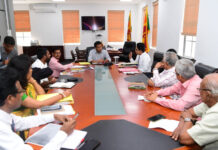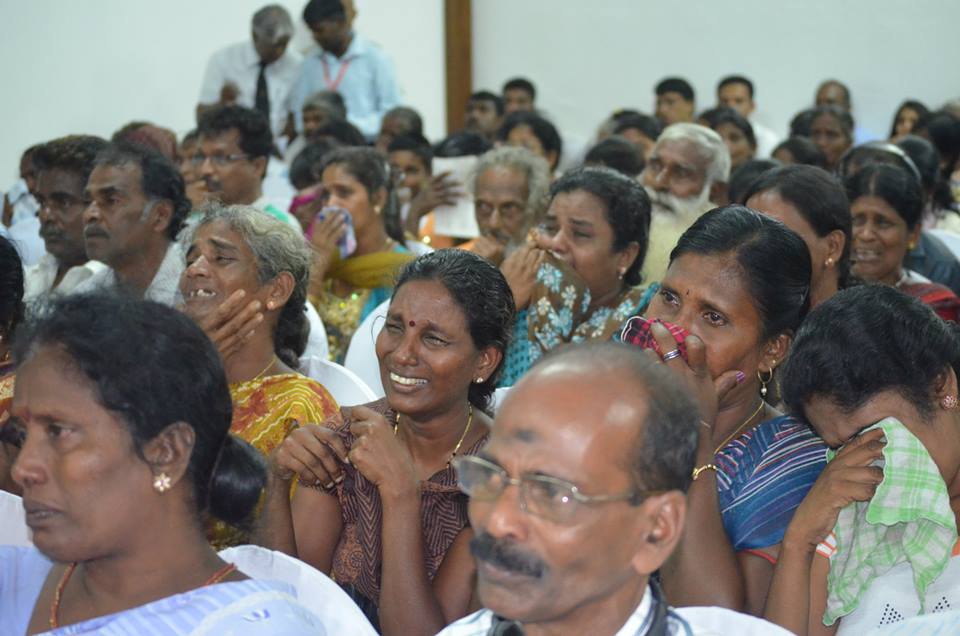 Will Sri Lanka ever be held to account for its past?
Will Sri Lanka ever be held to account for its past?
At midnight on August 27, in the war-ravaged town of Trincomalee, military personne visited a friend of mine and fellow activist, who is also a Catholic priest, a human rights lawyer and an attorney-at-law. They were asking him about Navaneetham Pillay, UN High Commissioner for Human Rights, who had visited Sri Lanka at the invitation of the government.
Earlier that day, the high commissioner had a long conversation with the priest. The midnight visitors wanted to know about that meeting.
A few days later, August 30 was the International Day of the Disappeared. In a hall packed with about 300 people in Colombo, nine women sat at the head table. Eight of them were Sri Lankan women; ethnically Tamil, Sinhalese and Muslim, from different parts of Sri Lanka, including the war-torn North and the capital, Colombo.
Several were ones I knew and worked closely with. I had come to know them during their search for a father, husband or son who had disappeared. They all shared their story of pain and struggles to find the person they loved.
The other woman, who sat listening intently was Navi Pillay. As a South African she too has experienced discrimination, and as a lawyer has fought to defend human rights activists detained during the anti-apartheid struggle there.
Like the eight Sri Lankan women searching for their loves ones, and their supporters like me, Pillay, has also been called a “terrorist supporter” by ministers, officials and supporters of the Sri Lankan government.
The UN high commissioner spoke about how moved and pained she was about the disappearances, and what terrible crimes they were. She said she understood some of the pain as a mother herself.
Before her speech and afterwards, she embraced these crying women searching for their disappeared loved ones and promised to stand with them in their struggle.
A few days earlier, in the north, she had also embraced the mother of Nimalaruban, a Tamil political prisoner who was tortured and killed in custody last year. Irrespective of what politicians and civil society thought of Pillay, it was clear she endeared herself to these women, who flocked in their hundreds to talk to her, present their petitions or even just be seen or heard by her.
During the press conference on the last day of her visit, Pillay remembered these women and their relatives, and even quoted directly from their testimony. She again said she was very moved by the trauma of the relatives of the missing and the dead, but also their resilience.
She stressed that wounds will not heal and reconciliation will not happen without respect for those who grieve and remembrance for the tens of thousands who died on battlefields, on the street or in detention.
She called the LTTE – commonly known as the Tamil Tigers – a murderous organization that should not be glorified. She went on to say that although the war had ended suffering had not, and that democracy has been undermined and the rule of law eroded. Here she may have been referring in particular to the impeachment of former chief justice Shirani Bandaranayake earlier this year and the lack of independent institutions to provide checks and balances.
She expressed concern about militarization of former war areas, political prisoners, abuse of women, violence against religious minorities and emphasized that physical reconstruction alone will not bring reconciliation, dignity or lasting peace, and the importance of truth, justice and reparations for people’s suffering during the war.
The high commissioner had talked about many of these issues for a number of years. None of this was new to me, or to any discerning independent and objective observer of human rights in Sri Lanka.
But I was surprised that the she had not commented on the absolute lack of progress in implementing the recommendations of the Lessons Learnt and Reconciliation Commission, which the government itself had appointed.
I was also surprised that she had been quick to welcome the newly appointed Commission of Inquiry to look into disappearances, without addressing the series of previous commissions that had not been of much use to families of victims.
But I was not surprised by the reaction to Pillay’s visit from the government who invited her here.
Some ministers criticized her past anti-apartheid activism and questioned her impartiality, citing her Tamil origin.
Others resorted to more stark and personal forms of discrediting her, while government allies held protests against her visit.
Predictably, after Pillay had shared her preliminary observations of the visit, the government claimed that she had overstepped her mandate, ignoring her comments on the day of her arrival that she will assess the human rights situation based on standards and commitments that the world’s governments, including Sri Lanka, have made.
Given the several years of threats and discrediting of those taking human rights issues to the UN and the international community, I was also not surprised that those who had met or tried to meet Pillay had been questioned and intimidated, like my priest-lawyer friend.
The UN human rights chief’s visit once again exposed the split in the Catholic Church in Sri Lanka. As well as my friend, at least one Tamil bishop and several Tamil priests from the north braved imminent threats to meet Pillay and make submissions about grave human rights violations, past and present.
Other Tamil Catholic priests took lead roles in supporting the mobilization of families of disappeared persons and other victims of rights violations during Pillay’s visit to Jaffna and later accompanied these families to Colombo — as they had tried to do five months ago, when they were stopped by the police.
Although the lack of involvement of Sinhalese Church leaders was conspicuous, at least one Sinhalese Catholic priest dared to meet Pillay without the knowledge of his bishop. Several other lay Catholics and Sinhalese priests and sisters joined in some protests and public events during Pillay’s visit.
But immediately after she announced her preliminary findings, the Catholic bishop of Batticaloa stood with President Mahinda Rajapaksa in a newly opened church and praised him and the army for the wonderful work they have been doing.
Prior to 2007, Pillay and her predecessor had issued dire early warnings about an impending crisis in Sri Lanka and the need for international action on the worsening human rights situation.
Local and international human rights groups and some members of the Catholic Church had also sounded alarm bells.
But the member states of the UN ignored these and effectively left tens of thousands of Tamils as well as government critics to die.
Will the UN member states ignore the warning of its human rights chief again? Will the Commonwealth heads of government take note of Pillay’s assessment and think twice about coming to Colombo to hold their meeting?
If they do come, will they have a strategy not to whitewash the authoritarian regime and stand up for victims, their families and Commonwealth values?
Will Church leaders, other faith groups, media, civil society in Sri Lanka and overseas, take seriously Pillay’s preliminary findings? Ignoring them may only lead to further tragedy and suffering.
In the meantime, my priest-lawyer friend, the families of the disappeared and several others in Sri Lanka who cooperated with Pillay will wait to see whether the risks and effort they made were worthwhile.
Ruki Fernando serves as chair of Rights Now, a collective for democracy in Sri Lanka

